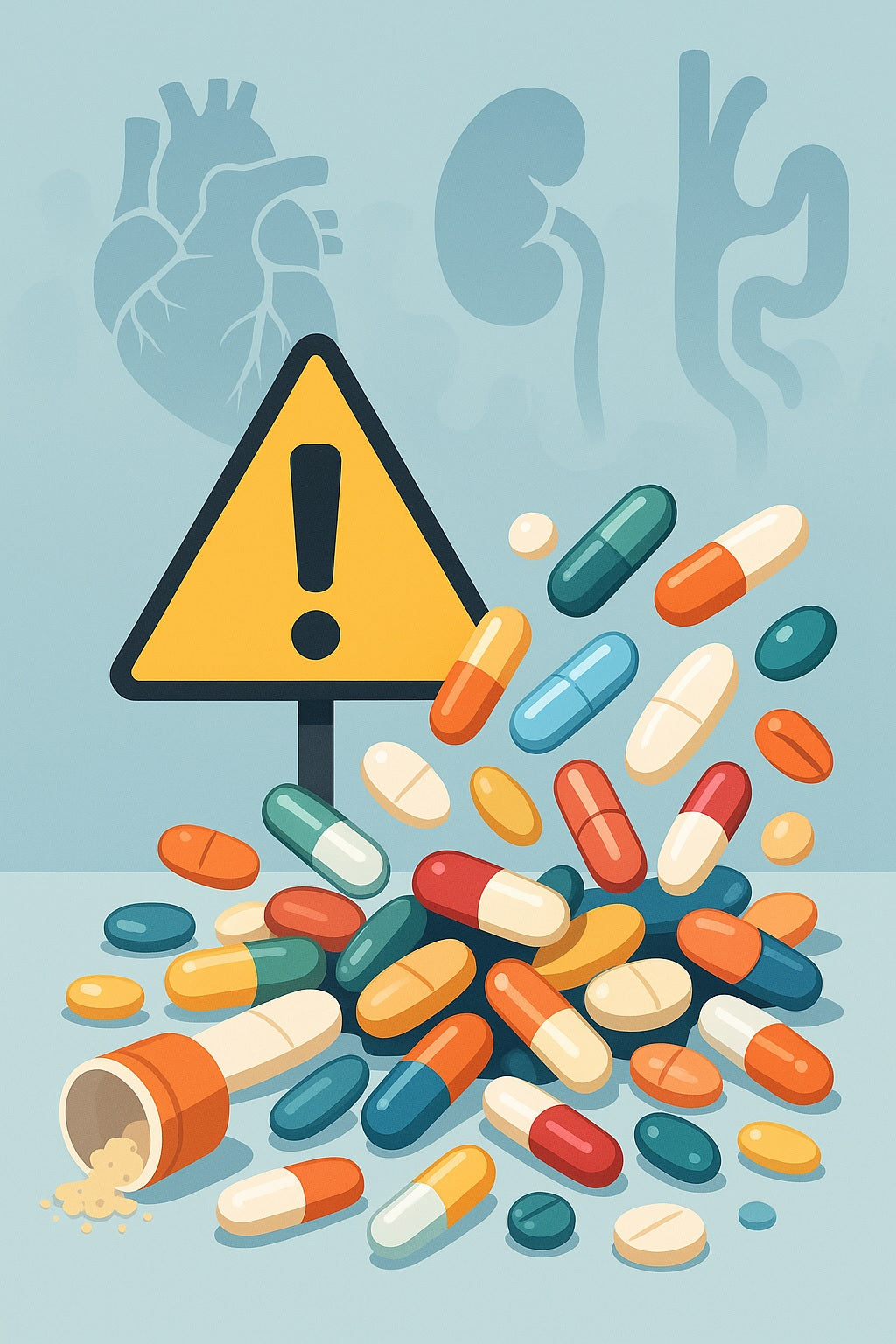
Side Effects of Excessive Dietary Supplement Intake: What Science Says
Share
Dietary supplements, ranging from vitamins to herbal products, are widely consumed for their perceived health benefits. However, while these supplements can support overall health, excessive intake poses significant risks.
Common Supplements and Risks:
1. Vitamin D Overdose: Excessive Vitamin D intake can lead to hypercalcemia, a condition marked by excessive calcium in the blood. Symptoms include nausea, frequent urination, weakness, and kidney stones. According to research published in the Journal of Clinical Endocrinology & Metabolism (Holick, 2011), prolonged hypercalcemia can significantly damage kidneys and cardiovascular health.
2. Magnesium Toxicity: While magnesium is crucial for bodily functions, high doses (above 400mg/day for adults) can cause diarrhea, abdominal cramps, and in severe cases, cardiac arrhythmia. A study from Clinical Kidney Journal (Assadi, 2012) highlights that individuals with impaired kidney function are particularly vulnerable to magnesium toxicity.
3. Omega-3 Fatty Acids Overconsumption: Omega-3 supplements, though beneficial, may cause blood thinning, increasing the risk of bleeding, especially when combined with anticoagulant medications. The American Heart Association cautions moderation in its scientific advisory (Siscovick et al., 2017), citing potential complications in surgical contexts.
4. Probiotics Excess Intake: Probiotics generally enhance gut health, but excessive consumption can disrupt gut balance, leading to infections or metabolic issues, as noted in a review published by Clinical Infectious Diseases (Bafeta et al., 2018). Individuals with compromised immune systems should particularly exercise caution.
5. Collagen and Protein Supplements: Excessive collagen or protein intake may overload kidney functions and increase the risk of dehydration. According to research from the American Journal of Kidney Diseases (Ko et al., 2020), excessive protein supplementation can accelerate kidney disease progression in vulnerable individuals.
How to Stay Safe:
-
Consult Healthcare Providers: Before starting or significantly increasing supplement dosages.
-
Follow Recommended Dosages: Stick to the guidelines provided on supplement labels or healthcare advice.
-
Monitor Your Health: Regular check-ups help detect any potential adverse effects early.
References:
-
Holick, M.F. (2011). Journal of Clinical Endocrinology & Metabolism.
-
Assadi, F. (2012). Clinical Kidney Journal.
-
Siscovick, D.S. et al. (2017). American Heart Association Advisory.
-
Bafeta, A., Yavchitz, A., Riveros, C., Batista, R., & Ravaud, P. (2018). Clinical Infectious Diseases.
-
Ko, G.J., Kalantar-Zadeh, K., & Goldstein-Fuchs, D.J. (2020). American Journal of Kidney Diseases.
